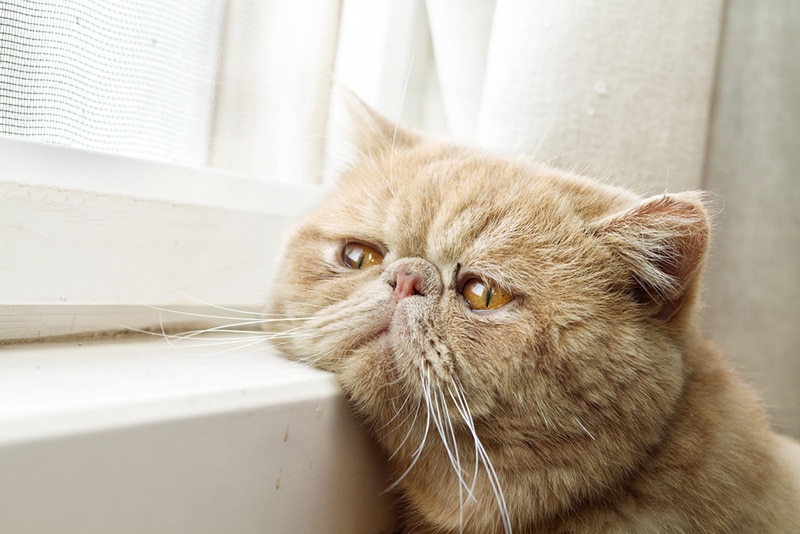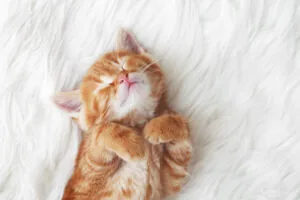Is my cat sick? Here are some symptoms to look for

According to the American Pet Products Association, there 78 million dogs and 86 million cats are owned in the United States. But did you know that veterinarians often see more dogs than they do cats?
It happens all too often — by the time an owner realizes their cat is sick, the cat is VERY sick. Cats tend to hide their illnesses, or sometimes they even hide from us altogether!
Cats are very smart, indigenous, stoic creatures that tend to show little emotion to injury or illness, however, there are 8 signs/symptoms that you can look out to determine your pet is sick and is need of medical attention.
1. Change in appetite
Eating too much or too little can potentially signify disease. If you notice a change, you should notify your veterinarian. There are countless diseases that can cause overeating or losing one’s appetite. Your veterinarian will typically start with blood work, X-rays and/or ultrasound.
2. Weight change
Weight loss can be an indication of many diseases, or worse, cancer. Weight gain or a growing belly can be related to various conditions and parasitic conditions. Obesity is detrimental to your pet’s health as it can lead to arthritis, tumors and a shorter lifespan.
3. Inappropriate elimination
Causes of this annoying habit can be behavioral or indicate a disease. Discuss your pet’s symptoms with your veterinarian to rule out a urinary/bladder infection or urinary blockage before treating this as a behavior issue.
Diarrhea can result from stress, a change in diet or water, food sensitivities, intestinal parasites, infections, poisoning or many illnesses. Watery diarrhea, diarrhea with blood, or diarrhea accompanied by vomiting or other signs of illness warrants a call to the veterinarian. Cats commonly become constipated. They may strain to defecate hard feces or pass small amounts of watery feces. Examine your cat’s litter box to make sure he’s defecating as he should be.
4. Vocal change
Voice changes can actually indicate a problem. Normally quiet cats with an increase in vocalizations, or a usually chatty kitty which suddenly becomes quiet, might mean trouble. Coughing can be caused by a variety of conditions, including foreign bodies, hairballs, allergies, asthma, tumors, heart disease, lung disease or several contagious illnesses.
5. Behavior/Stress Induced change
If your normally social feline suddenly becomes antisocial, there may be a medical reason. A classic sign of illness is hiding. A change in your cat’s routine may be a sign of stress. Changes in the environment your pet lives in, like the addition of another pet, remodeling or loud noises can all cause hiding, depression or a lack of appetite. Be objective and thorough when describing any potential changes to your veterinarian.
6. Activity/Sleep change
A sudden increase in activity level in a middle-aged to older kitty can indicate a disease. If your kitty seems less than enthusiastic about moving around or playing, it may indicate arthritis or other issues. If your cat seems to sleep all day when he used to be active, he may be trying to tell you he doesn’t feel well. The opposite is also true. If your kitty is up all night roaming the house, vocalizing or seems overactive during the day, there might be an underlying cause.
7. Grooming change
Lack of grooming can cause a dull or greasy hair coat, which can indicate skin disease or other problems. Some cats over-groom and end up with bald patches. Skin parasites, like fleas or mange, or even stress can cause this behavior.
8. Foul breath
An odor coming from your cat’s mouth can mean gum disease or tooth decay or even some kidney conditions. Brushing your cat’s teeth is a good way to decrease those risks. Imagine if you went years without brushing your teeth! Good dental health has a lot to do with a long healthy life.
. . .
If your cat is exhibiting any of these symptoms, speak to your veterinarian immediately – they are your best resource to ensure the health and well-being of your pet. Taking your feline friend to the veterinarian and doing yearly blood work helps to catch conditions and illnesses early to ensure a longer lifespan.
Share This Post
Recent Posts
About Shallowford Animal Hospital
Shallowford Animal Hospital and The Pet Spa at Shallowford are dedicated to the exceptional, compassionate care your pet deserves. Pets hold a very special place in our families, and we treat yours like our own.



